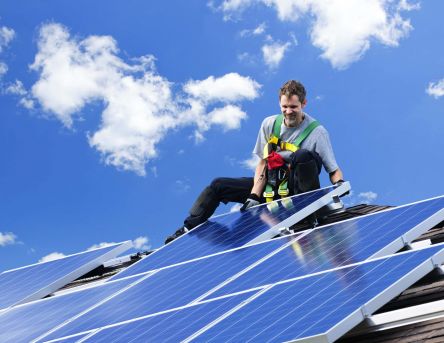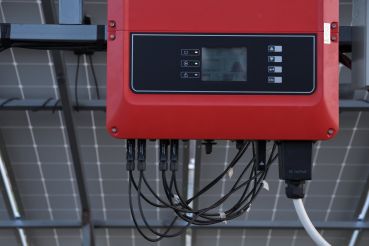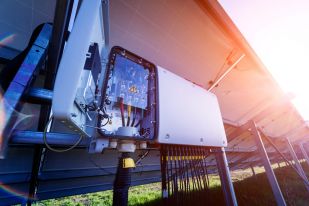Best Solar Panels For RV New Jersey
You know that RVs are not different from homes. They need the right type of solar panels installed in them for them to function properly. So if you are looking for a reliable power source, you need to have the right type of solar panel.
How to choose the best portable solar panels for RVs
Selecting the best solar panels for RV can be challenging when there are so many options available. To ensure that your RV’s power source is reliable, you should know which types of solar panels are compatible with RVs and which ones are the best.
The following are some factors to consider when choosing solar panels for your RV:
- An area where you live
The amount of sunlight you can get where you live will affect the type of solar panel you should choose. For example, if you live somewhere with more sunlight than other areas, it would be wise to consider getting higher wattage panels. If you’re located somewhere where the sunlight isn’t as strong or less consistent, you could probably get away with lower wattage panels.
- Type of RVs
Solar panels can be customized to suit the needs of different RVs. Some RVs involve appliances that require more energy, while some simply need a reliable power source for basic functions such as lighting and water pumps. When shopping for your solar panel, make sure it fits your RV.
- Panel shape
The shape of the solar panels that you choose will depend on the best use for them. For example, if you’re installing a set on an RV roof or the top of a vehicle, consider getting rectangular panels because they have more surface area and power output.
- Solar system maintenance requirements
You should also consider the requirements that you’ll need to do for the solar panel system after installation. If you’re not very handy or don’t like doing any maintenance, you might want to get a system that does not require too much work on your part.
Flexible solar panels for RV
Flexible solar panels for RVs are a great option if you want something that can better handle the motion and vibration of an RV while driving. These types of solar panels will work well on top of any RVs or other outdoor vehicles to keep them powered up wherever you go!
Daily power consumption of your RV
RVs vary in terms of how much power they need to function properly. It would be best to choose solar panels for your RV based on the level of electricity your RV consumes daily and whether it is enough for you to go off-grid (generate all the power you need from renewable sources). Once you know how much energy you use, you can choose the most suitable solar panel size for your needs.
It suits your budget well.
The different models and types of solar panels will have a range of prices. You should consider the price of your preferred model as well as its special features to ensure that they both suit your budget.
What is the general appearance of an RV solar setup?
Solar panels are usually mounted on the roof or top of the RV. They cannot be installed in areas where they will disrupt the structure of the RV, like near vents, for example. The panels are hooked up to an inverter system which converts electricity from direct current (DC) to alternating current (AC).
Types of solar panels for RV’s
There are different types of solar panels to choose from, depending on your preferences.

- Monocrystalline Solar Panels
These types of solar panels are usually made from silicon that is cut into thin wafers. These types of panels will give you the highest efficiency, but they are also typically more expensive than other types of panels.
- Polycrystalline Solar Panels
The majority of flexible solar panels for RVs fall under this category because they are less expensive than monocrystalline panels. They are also better at handling higher temperatures. However, they typically have a lower energy production compared to other types of solar panels when in direct sunlight.
- Amorphous Solar Panels
These types of solar panels typically have the lowest cost per watt and they’ve been shown to outperform both monocrystalline and polycrystalline panels in lower light conditions. However, they are also more fragile compared to other types of solar panels.
Wiring and monitoring

To ensure that the solar panels are functioning properly and producing electricity, you’ll need to check:
1. The brightness of the sunlight in your area, which can be found on weather websites
2. How many amps are being produced by the solar panels at any given time, which you can measure using a digital multimeter
3. Battery voltage levels, which can be measured using a voltmeter or an RV-specific battery monitor
4. The amount of energy the batteries are holding, which can be found on a battery monitor display
5. Power usage in your RV, which you can find out by plugging in appliances and gadgets to see how much they draw from the inverter system
You will also need to periodically clean off any dirt or debris that accumulates on the panels. This ensures that the panels are producing maximum output.
What is a solar power inverter?
To have a functional solar energy power system, you will need a solar converter or inverter. This device changes DC electricity from the batteries, which can only be stored in a limited amount, into AC electricity that is more readily usable by appliances and gadgets.

RV solar kit with inverter
A complete solar power kit for RV’s consists of
- Solar panels that are mounted on the roof or top of your RV
- An inverter system to convert DC electricity into AC electricity
- A battery monitor display to keep track of the energy stored in your batteries and alert you when they need to be recharged (or you can recharge them when they get low enough)
- Battery monitor display, which you can find in the user manual that comes with your kit
- A voltage monitor or ammeter which you will need to install to check how much power is being consumed by the appliances and gadgets plugged into your inverter system
- Solar panel mounts that are sturdy enough to hold the solar panels in place
- Wire connectors which you can use to attach wires from your inverter system, solar panels, and battery monitor display
- Cables to connect your appliances/gadgets to the AC power provided by your inverter system
- Solar fuses or circuit breakers which you should install next to the battery monitor display
- A multimeter for checking battery voltage levels
RV solar panel kit with battery monitor display
This is a complete kit with everything you need to get your electricity from the sun. A 40-watt solar panel charges two 18 Amp/Hour deep cycle batteries which operate a 600 Watt pure sine wave inverter, and an LCD display notifies you about how much power it’s making. When fully charged, this green energy system powers most appliances in an RV. With so many features, this system is a truly smart investment.
What are the mounting hardware requirements for an RV?
1. The solar panels need to be mounted at a 45-degree angle away from the sun and tilted towards it at the time of day when the sun is highest and produces maximum output
2. You will need to measure how far your RV’s batteries are from where you want to mount your solar panels, as well as measuring how much wiring you will need to connect the two
3. You’ll also want to find out how much weight the roof of your RV can handle, as well as make sure that it has ample enough space on the rooftop where you can install your solar panels
4. Your RV’s inverter needs to be placed near an AC power source, which many are not, so you will have to have an electrician install a new outlet for your inverter to plug into
Why do you need a reliable power source for your RV?
Without electricity, your RV won’t be able to run any of the appliances or charging devices. If you want to go off of the grid with your RV, you need a solar panel- the best of which provides about 200 watts.
For a solar panel to work correctly, it needs sunlight. That’s why the sunniest time of day is from noon until sunset-these are the times when you’ll see your panels produce at their peak capacity. However, even cloudy days will allow for some power production as much as 25%. This means that if you’d like to use your RV without having to worry about finding an electrical outlet every time, then you should be using solar panels.
How to install a solar panel on an RV
The installation process may vary depending on the type of RV that you have. The following are some general installation guidelines:
- Most RVers who have rooftop mounts install their solar panels parallel to the roof of the RV. This is done to maximize exposure to sunlight through the day while minimizing the panels’ exposure to wind and water at night.
- The solar panel should be placed facing directly south or southwest to get the most exposure to sunlight possible-this is true regardless of whether you have a fixed mount, an adjustable pedestal mount, or a tilt-mount.
- The solar panels should always be secured to the roof of your RV with screws and bolts to prevent any wear and tear from causing significant damage to the system.
- Most RVers do not have batteries in their solar power systems. If you want to run your appliances during cloudy days or when nobody is outside generating energy for you, you may want to consider investing in batteries.
- If your RV solar power system is already wired with AC inverters, then it should be easy to set up the additional wiring needed for the batteries. If you are not familiar with electrical wiring, consult a professional before installing any other equipment into the system.
Frequently Asked Questions
Do I need to have solar panels in my RV?
Solar panels are an essential part of any RV. You need them to be able to have power in your rig when you’re off the grid. By “solar panels,” I mean any solar-powered technology, whether it’s wired on your roof or panels that extract the power from the sun.
How many solar panels do I need?
Generally speaking, you will need as many as your rig will allow- the more space you have for them on your RV, the better. While it is unnecessary to have a large array of panels, you should install as many as possible and strategically place them throughout your RV’s roof.
What type of solar panels are best for RV roofs?
I would say that Mono-crystalline photovoltaic panels are the best type of solar panels for RVs. While certain types-like polycrystalline photovoltaic panels and thin-film photovoltaic panels, work well, monocrystalline are known for their high energy production yields. They are also more efficient, which means that you will be able to make the most out of your solar panels.
Is there a specific solar panel for RVs?
You can interchange any of the above types of panels for an RV-you need to ensure that it is compatible with your RV and install it in such a way that it will function correctly. If you’re not sure what type or how many panels you need, then you should get in contact with a trusted solar panel supplier who can help you to choose the right kind of panels for your RV.
Is it easy to install solar panels on an RV?
Depending on whether you want a DIY job or would rather have professional take care of the installation for you, this will vary. You should be able to do it yourself with help from some instructional videos or diagrams found online. Sometimes, however, if you don’t want to end up making a mistake that could leave your beloved RV irreparable, then it might be better to hire a professional who knows what they are doing.
Summary – Best solar panels for RV
Choosing the best solar panels for your RV can be a challenging task. Consider the amount of sunlight you get where you live and the type of solar panel you choose. Also, consider the requirements that you’ll need to do for the solar panel system after installation. It would be best to choose solar panels for your RV based on the level of electricity your RV consumes daily and whether it is enough for you to go off-grid.
Solar panels are usually mounted on the roof or top of the RV. Prices vary, so make sure you do your research to find the best deals. Thin-film solar panels are the cheapest solar panel, but they are less efficient than other types. One example is monocrystalline or polycrystalline panels. To have a functional solar energy power system, you will need a solar converter or inverter.
RV solar panel kits often come with all of the necessary components for powering appliances and gadgets in your RV. If you want to go off of the grid with your RV, you need a solar panel- the best of which provides about 200 watts.
Most RVers do not have batteries in their solar power systems. If you want to run your appliances during cloudy days, you may want to invest in batteries. Monocrystalline photovoltaic panels are the best type of solar panels for RVs. If you’re not sure what kind or how many panels you need, then you should get in contact with a trusted solar panel supplier.
